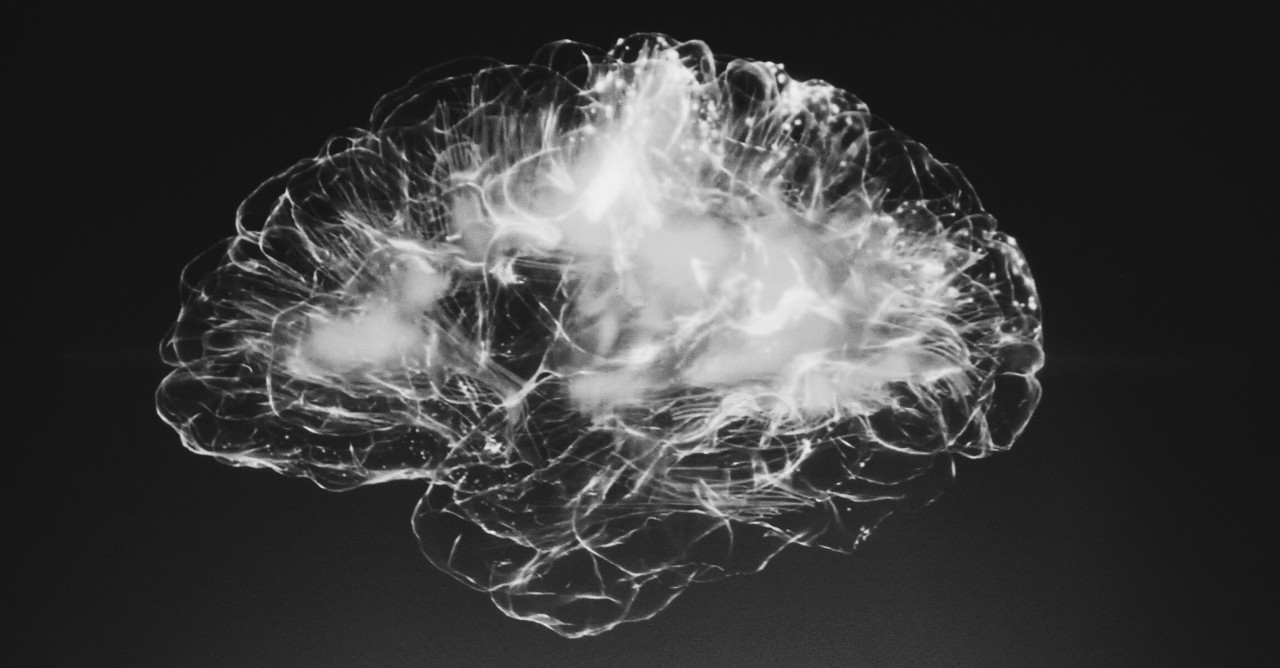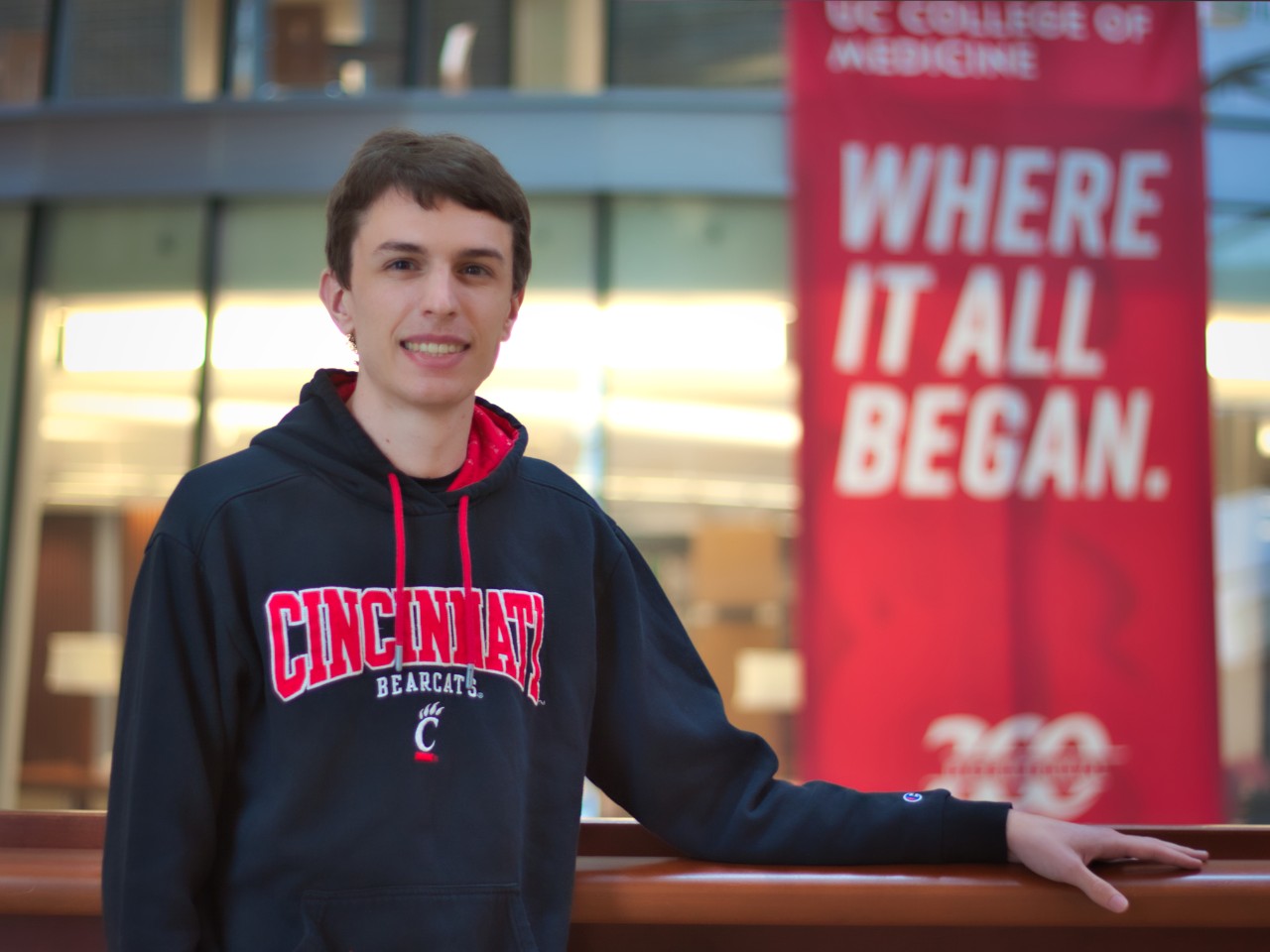
UC study: Signaling pathway in brain helps maintain health, prevent cognitive deficit
Research published in Nature Communications
A new study led by University of Cincinnati researchers sheds new light on the role of a signaling pathway in the brain to maintain health and prevent inflammation and cognitive deficits.

Agnes (Yu) Luo, PhD. Photo/University of Cincinnati.
UC’s Agnes (Yu) Luo, PhD, is corresponding author on the research, published June 21 in the journal Nature Communications, and focused on a signaling pathway called TGF-β that plays a number of roles depending on where it is located in the body.
Luo explained that signaling pathways in the body control different cell functions and require two components: a type of molecule called a ligand and a receptor that the ligand binds to and activates to start the signaling.
Prior to this study, it was known that the TGF-β signaling pathway was important in brain immune cells called microglia in maintaining their balance, but its role in maintaining cognitive function was largely unknown. Additionally, the precise source of the TGF-β ligand in the brain was also unknown.
Luo said the researchers used state-of-the-art tools and found for the first time that microglia make the TGF-β ligand in the brain to prevent neuroinflammation.
“Microglia cells are the innate immune cells of the brain, and what surprised us most is that they each make their own TGF-β ligand,” said Luo, professor and vice chair in the Department of Molecular and Cellular Biosciences in UC’s College of Medicine. “This TGF-β ligand binds to the receptor on the microglia cell itself, and they use this signaling to stay in homeostasis. This self-produced ligand binds to receptors on the cell’s surface to keep each cell in a constantly balanced, and not in an inflamed, state.”

A 3-D rendered confocal image shows a single TGF- β1 knockout microglia being activated while it is surrounded by normal microglia that do not have the gene deletion. Photo provided by Agnes (Yu) Luo.

Elliot Wegman, graduate student and study co-author. Photo provided.
While it was previously known that TGF-β signaling helps keep microglia in balance, Luo said it was not known that microglia make the ligands themselves in a “spatially and precisely controlled” manner carried out by each individual cell, a mechanism called autocrine signaling.
“You can think of these microglia cells as being, in a way, ‘selfish,’ as they only make the ligand to keep themselves in balance and not inflamed,” said graduate student and study coauthor Elliot Wegman. “This, thereby, provides a very precise mechanism to regulate local states of inflammation in the microenvironment of the brain.”
Using animal models, the team additionally found that when the TGF-β ligand is genetically deleted from microglia, it leads to global neuroinflammation in the brain.
“This suggests that the neuroinflammation in microglia is sufficient by itself without other causes to drive cognitive deficit,” Luo said. “We show the direct cause and link between these events.”
Moving forward, the team will investigate whether cognitive deficit can be slowed, stopped or potentially reversed by boosting the TGF-β ligand and signaling pathway in the brain under conditions where TGF-β signaling becomes compromised.
“We’re investigating whether restoring the TGF-β signaling pathway and revitalizing its signaling can then ameliorate disease-related or age-associated cognitive deficits,” she said. “The long-term goal of our research is to modify the brain environment to better support the survival of the neurons or promote repair of the brain after injury or damage.”
Impact Lives Here
The University of Cincinnati is leading public urban universities into a new era of innovation and impact. Our faculty, staff and students are saving lives, changing outcomes and bending the future in our city's direction. Next Lives Here.
This study was supported by National Institutes of Health grants (R01NS127074 and F31NS125930). Additional coauthors and collaborators on the paper include UC’s Alicia Bedolla, Max Weed, Kierra Ware, Anastasia Alkhimovitch, Igal Ifergan, Aleksandr Taranov, Joshua D. Peter and Lucas McClain; Messiyah K. Stevens of Vanderbilt University; Rosa Maria Salazar Gonzalez, J. Elliott Robinson, Aditi Paranjpe and Krishna M. Roskin of Cincinnati Children’s Hospital Medical Center and Nigel H. Greig of the National Institutes of Health’s National Institute on Aging.
Featured photo at top of an illustration of the brain. Photo/Alina Grubnyak/Unsplash.
Related Stories
President picks exceptional talent
April 28, 2021
The University of Cincinnati 2021 Presidential Leadership Medal of Excellence Awards honor six undergraduate scholars for scholarship, leadership, character, service and the ideals of the university. Awardees are spotlighted for exceptional academics, creativity, community service and innovation.
Grad students earn president's highest honor
April 28, 2021
The University of Cincinnati 2021 Presidential Medal of Graduate Student Excellence Awards honor three graduate scholars for scholarship, leadership, character, service and the ideals of the university. Awardees are spotlighted for exceptional academics, creativity, community service and innovation.
Local 12: 180 UC med students receive white coats, students embark on journey during pandemic
August 9, 2021
The University of Cincinnati College of Medicine welcomed 180 newly admitted first-year students during the college’s 26th annual White Coat Ceremony. The ceremony was held Friday at 10 a.m. at Cincinnati Music Hall, 1241 Elm Street. Each member of the class of 2025 were presented with a white lab coat, symbolizing entry into the medical profession. Local 12 covered the event.
GIVEHOPE and BSI Engineering Celebrate Ten Years of Driving Research
August 3, 2021
Years after two personal losses from pancreatic cancer, Cincinnati-based nonprofit GIVEHOPE and consulting firm BSI Engineering are celebrating a philanthropic partnership that has funded 13 pilot research projects at the University of Cincinnati Cancer Center.
Finding community and building a future
July 9, 2021
As a University of Cincinnati College of Medicine student, Sarah Appeadu, MD, ’21, remembers journaling on the “3 Cs” that got her through medical school: Community, community, community. Now, when she lists the people who supported her through four years of training—the last year in a global pandemic—it keeps growing: her family, her church, her classmates, and the college’s Office of Student Affairs and Office of Diversity, Equity and Inclusion. “I look back and it was such a crucial time to really be nurtured in that way,” she says. “I’m so thankful that I had those people. It shows being around the right people really mattered. That’s my same hope for residency even.”
UC to honor 2,079 grads at summer Commencement
August 2, 2021
UC celebrates the 2021 summer Commencement on Friday in two ceremonies at Fifth Third Arena. On Saturday, UC will recognize 2020 grads with an in-person Commencement celebration.
New York Times: Flint Weighs Scope of Harm to Children Caused by Lead in Water
February 1, 2016
Kim Dietrich, a professor of environmental health at UC's College of Medicine, is quoted in this story on the medical problems that could develop among the thousands of young children exposed to lead-contaminated water in Flint, Mich.
Cancer-Causing Gene Found in Plasma May Help Predict Outcomes for Patients
February 18, 2016
Researchers at the University of Cincinnati have discovered that a human cancer-causing gene, called DEK, can be detected in the plasma of head and neck cancer patients.
UC Receives $1.9 Million to Study Pain
February 15, 2016
Jun-Ming Zhang, MD, of the UC College of Medicine, is the principal investigator of a $1.95 million grant to study the interacting roles of the sympathetic and sensory nervous and immune systems in back and neuropathic pain models.
MD Magazine: Generic Drug Equally Effective in Epilespy
February 22, 2016
Michael Privitera, MD, a professor of neurology at UC's College of Medicine and director of the Epilepsy Center at the UC Neuroscience Institute, is featured in this story about research he led that examined the efficacy of generic drug substitution for epilepsy.
